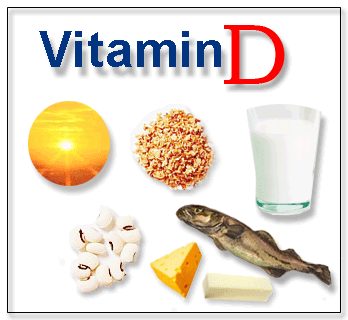Results from a recent study:
"Vitamin D, a prosteroid hormone with anti-proliferative and pro-differentiation activity, is thought to act as a cancer chemopreventive agent. This study evaluated the association between vitamin D intake and breast cancer risk among women in a large prospective cohort study. "
"Vitamin D intake of >800 IU/day appears to be associated with a small decrease in risk of breast cancer among postmenopausal women. Studies evaluating all sources of vitamin D, especially sun exposure, are needed to fully understand the association between vitamin D and breast cancer risk."
Reference
Robien K, Cutler GJ, Lazovich D. Vitamin D intake and breast cancer risk in postmenopausal women: the Iowa Women's Health Study. Cancer Causes Control. 2007 Sep;18(7):775-82. Epub 2007 Jun 5.


Vitamin D could halve breast and colon cancer incidence
ReplyDeleteVitamin D Appears to Cut Breast and Colorectal Cancer Risk
These articles are discussing research published earlier this year showing patients with serum 25-hydroxyvitamin D of approximately 52ng/mL 130nmol/L had a 50% lower risk for breast cancer than those with serum measuring less than 13 ng/mL. This level corresponds to a vitamin D intake of 4000 IU per day.
I think this explains why the research using only 800iu daily only shows a limited effect. If we look at recent research on Vitamin D deficiency in babies in Iowa we see Vitamin D Deficiency in Breastfed Infants in Iowa it is clear that if the mothers are vitamin d deficient/insuffient there breast milk does not contain vitamin d and their babies are consequently also deficient.
The Hollis and Wagner paper High-dose vitamin D3 supplementation in a cohort of breastfeeding mothers and their infants: a 6-month follow-up pilot study. shows how much vitamin d is needed to ensure Vitamin D replete milk, It is possible that when NATURAL vitamin d satus allowing a NATURAL supply of vitamin d to be present in breast milk occurs it is likely that this will also enable the anti-proliferative and pro-differention chemopreventive actions of Vitamin D3 will be more successfully accomplished and greater reductions in Breast cancer incidence/mortality achieved.
Vitamin D dose study adds weight to intake increases see
ReplyDelete"Dose response to vitamin D supplementation among postmenopausal African American women"
Talwar and co-workers report that a daily dose of 2800 IU is needed if the individual has a starting 25(OH)D level of at least 45 nmol/L, while a daily dose of 4000 IU is needed for individuals with 25(OH)D levels less than 45 nmol/L.
The idea that 800iu is going to do much good is really a reflection on how slow health professionals are in keeping up to date with recent research.